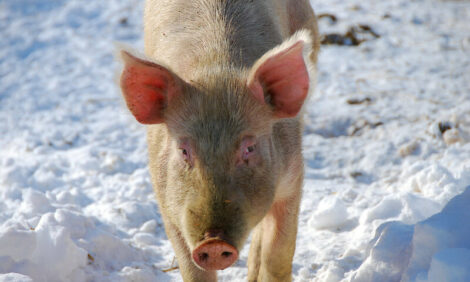



Aramark to Refuse Meat from Pigs in Gestation Crates
US - Philadelphia-based food-service giant Aramark has said that it will eliminate the use of all pork from animals bred using gestation crates in its US supply chain by 2017.In announcing the plan with the Humane Society of the United States, Aramark joined dozens of other food-service companies, restaurant chains, and supermarkets that have pledged to end their reliance on suppliers who house breeding pigs in confining crates their whole lives, reports
PhillyInquirer.
"Aramark is proud to stand in partnership with other industry leaders and supply-chain partners to transition away from gestation crates in a timely fashion," said Kathy Cacciola, Aramark's senior director of environmental sustainability.
"We're committed to operating responsibly and addressing key issues, including animal welfare, throughout our supply chain and business, and this commitment helps move the entire industry toward the elimination of gestation crates."
To meet this goal, Aramark has asked its primary pork suppliers to develop plans for reducing, and then eliminating, gestation crates.
It will require new suppliers signing contracts for pork to provide a plan that addresses how they will phase out gestation creates to meet these important goals, the company said in a statement.
"Aramark is the largest US based food-service company taking a stand on this issue, and the company's decision to eliminate pork from methods using gestation crates is a move toward even greater social responsibility," said Wayne Pacelle, president of the Humane Society.
In addition to other major food companies moving away from the use of gestation crates, such as McDonald's and Burger King, nine states have also passed laws banning them. Pennsylvania and New Jersey are not among them, but a bill to ban the practice is currently before the Legislature in New Jersey.








